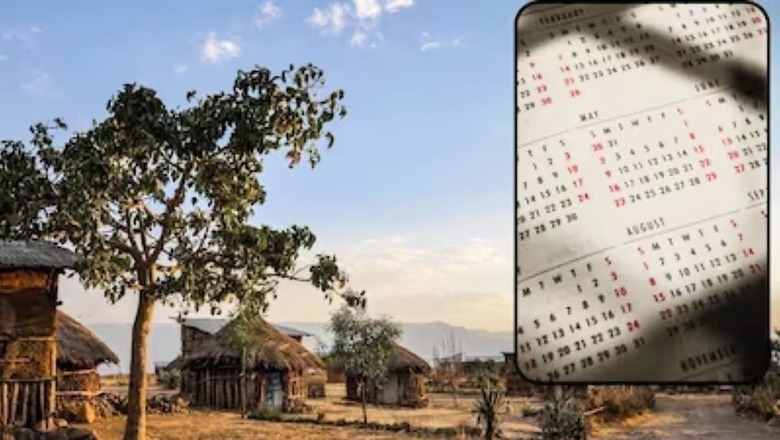This Country Observes 13 Months in a Year and is 7 Years Behind Rest of the World, Claims Viral Post

views
Different parts of the world have diverse beliefs, traditions, and cultures. However, one thing that usually remains consistent globally is the division of a year into 12 months. Despite this, there is one country where the calendar includes not 12, but 13 months in a year. Surprising as it may sound, this country is not only unique in its calendar system but is also seven years behind the rest of the world.
The country in question is Ethiopia, as highlighted in a viral video making the rounds on social media. In Ethiopia, the calendar has 13 months, with the 13th month consisting of just 5 days, or 6 days during a leap year. While most of the world has already welcomed the year 2024, Ethiopia will celebrate its New Year on September 11, 2024. This discrepancy is because Ethiopia follows an ancient calendar, which was adjusted by the Roman Church in 525 AD, and this same calendar is still in use today.
Ethiopia stands out not just because of its unique calendar but also due to its rich history. It is the only African country that was never colonised by Britain, although it was briefly occupied by Italy for six years. Additionally, Ethiopia is often cited as the birthplace of coffee.
See Viral Post here:
The video post discussing Ethiopia’s calendar has gone viral on social media, amassing over 5.49 lakh views, with thousands of likes, shares, and comments. Many users expressed surprise and curiousity, with some making light-hearted comparisons to other countries. For example, one user named Jitender Bhalla joked that India also seems to have 13 months in a year, especially according to mobile companies, considering the 28-day validity of mobile recharge.
The Ethiopian calendar, known as the Geez calendar, also differs from the Gregorian calendar in the names of its months. The year begins with Meskerem, which starts on September 11. The subsequent months are Tikimt, Hidar, Tahsas, Tir, Yakatit, Maggabit, Miyaziya, Ginbot, Sene, Hamle, Nehasa, and Pagume.




















Comments
0 comment